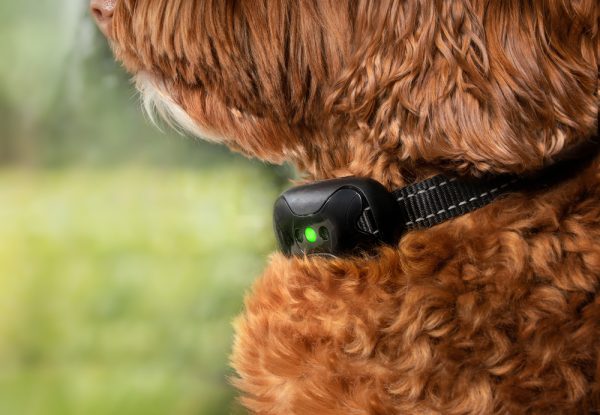In this article
View 5 More +Border Collies are historically working dogs; however, they are commonly chosen as household pets. Border Collies are a medium-sized, athletic breed. They are inquisitive, highly energetic, and very intelligent. Despite all their admirable traits, they can be susceptible to epilepsy. The prevalence of idiopathic epilepsy in the Border Collie dog breed is high 1.
It is thought to have a genetic component, however, it can be difficult to diagnose without clinical signs. If you are a Border Collie owner or are considering buying one as a working dog or a pet, read on to find out how epilepsy could affect your pet.

What Is Epilepsy?
Epilepsy is an overreaction of the electrical activity of some or all of the brain tissue. It is usually spontaneous, and it can cause localized muscle activity or a generalized effect on the whole body which results in seizures. There are many causes of epilepsy documented including infections, cancers, injury, and metabolic disturbances. Idiopathic epilepsy occurs with no identifiable underlying cause. This means there is no disease process or injury apparent.
Border Collies are usually affected by the idiopathic form of epilepsy—a hereditary disease seen in these dogs. Border Collies affected display completely normal behavior in between the seizure activity. The first sign of seizure activity commonly starts when the dog is between 1 and 4 years of age 2. The severity and frequency of fits vary greatly depending on the individual dog. Generally, seizures become more frequent with time.
There are different medications that can be used to control seizures and prevent the disease from progressing, but there is no cure. It can be a grueling and lengthy process to determine the correct dose and combination of drugs for your dog. If left untreated, the disease can progress to repeated cluster seizures and the occurrence of status epilepticus which is where the dog experiences prolonged and damaging seizures for over 5 minutes 3. Idiopathic epilepsy can eventually result in death if left untreated.

What Are the Signs of Epilepsy in Border Collies?
Border Collies experience two different types of seizures. They can be localized or “focal” where only parts of the brain are affected, therefore only parts of the body display signs. Focal seizures can be easily missed.
They can also experience generalized seizures which involve the whole brain and therefore the whole body. Seizures can start in one area and then progress to the whole body as well.
- Incoordination
- Loss of balance
- Changes in pupil size
- Flickering of eyes (nystagmus)
- Signs of loss of vision or hearing
- Suddenly growling or barking at nothing
- Hackles raised
- Involuntary movements
- Jerking/twitching
- “Fly catching”/snapping at the air
- Chomping/biting motions
- Hypersalivation
- Tonic movements (muscle contractions and stiffness)
- Clonic movements (involuntary rapid movements and jerking)
- Sporadic jerking of both sides of the body
- Arched back of the neck
- Paddling of limbs
- Abnormal breathing
- Sudden collapse
- Loss of control of the bladder
- Loss of control of bowels
- Loss of consciousness
Prior to the seizure starting, there are often subtle warning signs displayed by your dog. These may be difficult to spot depending on your dog’s usual behavior.
- Gazing at a fixed point in the distance
- Restlessness
- Aggression
- Circling
- More anxious/clingy than usual
- Snapping at the air
- Unusual barking noises
- Vomiting
- Dilation of pupils
Learning to spot the signs your dog shows before a seizure may help you prepare for the seizure and make the environment safe for your Collie. When the seizure has finished, your dog will usually return to normal. They will show certain signs post-seizure as their body recovers, however.
- Weakness
- Lethargy
- Fatigue
- Incoordination
- Extreme hunger
- Extremely thirst
- Panting
- Hyperactive behavior
These signs can last for up to 24 hours after a seizure.
If you’re concerned about your pet’s health, you should contact a vet.
If you need to speak with a vet but can't get to one, head over to PangoVet. It's our online service where you can talk to a vet online and get the advice you need for your pet — all at an affordable price!
What Are the Causes of Epilepsy in Border Collies?
It is thought that Border Collies are genetically predisposed to epilepsy. It has been noted that even if they don’t demonstrate seizure activity, they can still exhibit abnormal behavior such as shadow chasing and fly catching.
Seizures in Border Collies are the result of a malfunction of neurons in the brain that fire off rapidly. This leads to seizure activity such as involuntary muscle spasms. The actual source of the misfiring of neurons is difficult to pinpoint. Researchers believe there is a genetic component, however, there is currently no test to determine if a Border Collie has epilepsy. It is thought that idiopathic epilepsy in Border Collies is a complex polygenic disorder, meaning more than one gene is responsible.
In one study, an in-depth analysis of the pedigree indicates a strong genetic founder effect in the appearance of epilepsy. It is believed to resemble autosomal recessive inheritance. This particular study confirms the occurrence of genetically mediated epilepsy which has a frequently severe clinical course, there are often drug resistance issues.

Diagnosis of Epilepsy in Border Collies
Diagnosis of epilepsy in Border Collies is carried out by ruling out any other likely causes of seizures in the dog. Usually, your vet will have a suspicion of idiopathic epilepsy due to the signalment and history of the case (this means a young Border Collie presenting with a history of seizure-like activity)
- Full physical exam
- Routine blood test
- Routine urinalysis
- Radiographs
- Ultrasound scans
- Cerebrospinal fluid analysis
- CT scan
- MRI scan
- An electroencephalogram may also be done to record the electrical activity of the brain in between seizure activity.
If there is no evidence of toxins, issues with organ malfunction, infectious, cancerous, traumatic, or other causes of epilepsy, by process of elimination they will diagnose idiopathic epilepsy.
How Do I Care for a Dog with Epilepsy?
Treatment for epilepsy in Border Collies is never straightforward. Treatment may not be required if seizure activity is infrequent, and this does depend on the individual dog and the owner and their lifestyle. Research has demonstrated that Border Collies are often more prone to drug resistance problems. Some of the medications used can affect the dog to the point they cannot do their job any longer—for example, Border Collies working as sheep dogs on farms.
Deciding to start anti-seizure medication is a big decision you need to discuss in depth with your vet. You need to weigh up the benefits of seizure control with the drug side effects. Seizures can damage your dog’s brain tissue, more so if they are very frequent or prolonged. Your dog may also accidentally bite someone during a seizure or fall into something and hurt themselves.
- Your dog is having regular seizures, more than twice a month
- Your dog has had any seizures lasting longer than 5 minutes
- Your dog is experiencing cluster seizures (two or more close together in a 24-hour period)
- Phenobarbital: This is the most commonly used anti-seizure medication. It is part of the Barbiturate drug family. It works by stabilizing the brain cells and prevents any unregulated electrical discharges in the brain that could cause seizures. It can cause anemia and liver issues. Dogs taking phenobarbital require regular monitoring.
- Potassium Bromide: This is an anti-seizure drug that is used to control seizures in dogs that are not fully controlled by phenobarbital alone. Alternatively, it can be used for dogs that have severe side effects of phenobarbital or don’t tolerate the drug very well. Potassium bromide works by decreasing seizure activity in the central nervous system. Potassium bromide can take a while to work as it needs to reach a certain concentration to have an effect. Your vet will often prescribe a “loading dose” to obtain the required level. Your dog will require close monitoring during this time.
- Levetiracetam: This is an anticonvulsant drug. It is believed to depress the excitability of nerves in the brain and reduce the number of seizures. It can be used on its own or in conjunction with phenobarbital.
- Gabapentin: Gabapentin is another anticonvulsant, and it is used as an additional treatment alongside other drugs. If used alone, it is less effective than the other drugs mentioned.
- Diazepam: Diazepam is a benzodiazepine that is sometimes prescribed to owners to use at home in an emergency if their dog is experiencing prolonged or cluster seizures. It can’t be used as a long-term option for the control of seizures as the duration of effect isn’t long enough.
Sometimes if a dog is experiencing very frequent or prolonged seizures, your vet will need to sedate them or put them under general anesthetic to stop the seizure activity and regain control of the situation. Dietary changes and supplements have been suggested to make a positive difference, but more research is required before conclusions are drawn.


Frequently Asked Questions
What do I do if my Border Collie has a seizure?
Remain as calm as possible. Clear the space around them to ensure they don’t bang into anything and hurt themselves. If possible, hold your dog’s head gently to prevent them from thrashing about too violently. Don’t put your hands too close to their mouth as they may bite by accident.
You can talk to them in a calm, soothing tone. Stay with them and supervise them until the seizure stops. If the seizure is approaching 5 minutes in duration or if they are having repeated cluster seizures, call your vet as this is now an emergency situation.
What are the early signs of epilepsy in Border Collies?
Signs of epilepsy can appear at any time, but they usually occur between 1 and 4 years of age.
Some dogs will have no signs at all and then experience a full-blown seizure. Other dogs will start to fly snapping and shadow chasing and barking at random objects. Some dogs only experience seizures at night or when they are asleep so there may be no prior warning.

How long do Border Collies with epilepsy live?
Epilepsy does affect the quality of life and the lifespan of your dog. One study found that Border collies have a 2-year median survival from the time of seizure onset. This was reported with 94% affected by cluster seizures, 53% status epilepticus, and 71% rate of drug resistance.

Conclusion
Epilepsy is a common problem that Border Collies are genetically predisposed to. It usually starts at a young age, and it is a debilitating disease that is difficult to live with. There are some effective treatment options available. Choosing the best one for your dog involves taking into account the severity of the disease and the individual situation. Treatment can alleviate symptoms and delay the progression, although there is no cure.
Featured Image Credit: Lindsay Helms, Shutterstock





















